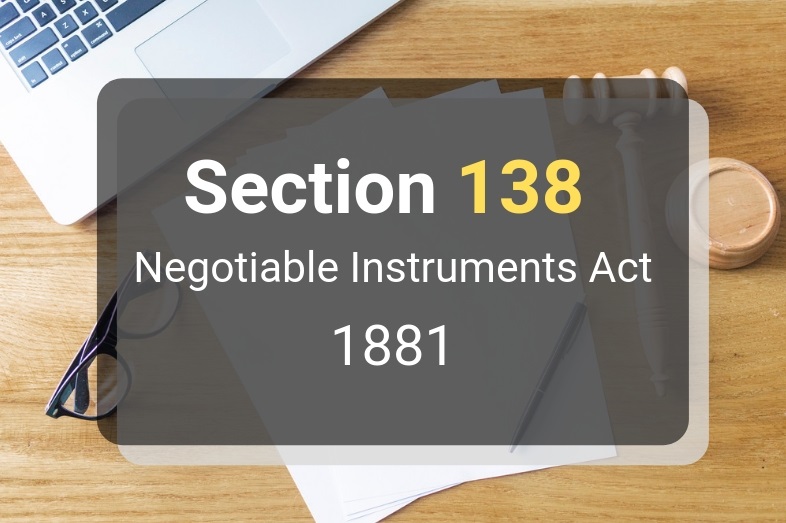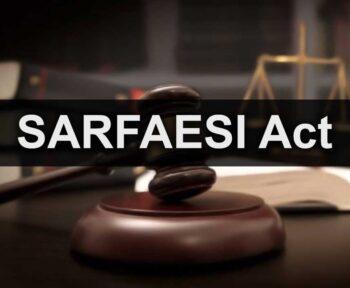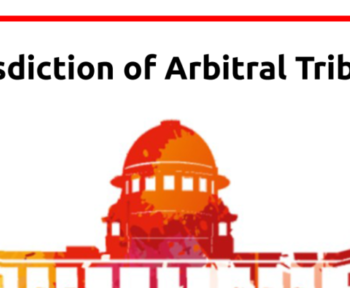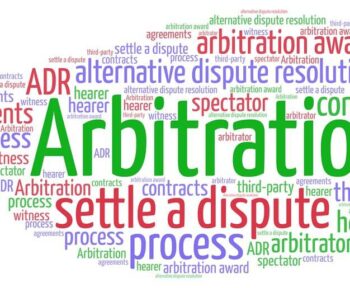Negotiable instruments, particularly cheques, serve as a vital tool in facilitating smooth and credible transactions in commercial dealings. The rise of the banking sector has positioned cheques as a preferred mode of transaction. Despite their convenience, the credibility of these instruments has occasionally been compromised due to instances where they are dishonored upon presentment. Section 138 of the Negotiable Instruments Act, 1881 (NI Act), addresses this issue by enforcing strict liability on the defaulters to maintain the sanctity of cheque-based transactions.
Objective and Scope of Section 138 of the Negotiable Instruments Act
The objective of S. 138 of NI Act is to promote credibility of payments done through cheque and to ensure effective banking operations. The objective of NI Act is to make special provisions that assure strict liability in cases of offences related to negotiable instruments. This provision aims at simplifying commercial transactions by providing sanctity to cheques and also shields payee by punishing drawer who never intended to honor the cheque.
Sec. 138 creates statutory offence in cases of dishonor of cheques whenever there are insufficient funds in drawers account or the payment exceeds the amount which exceeds the permissible amount that can be paid from the drawers account. In matter of cheque dishonor mens rea (guilty mind) is not an essential element as compared to other criminal offences. This provision imposes strict liability in order to prevent dishonest and careless attitude of drawer in discharge of his debts.
NI Act is silent on territorial jurisdiction under Sec. 138. However, it can be to be examined from Criminal Procedure Code, 1973. Sec. 177 of the Criminal Procedure Code, 1973 provides that every offence shall be tried by that court within whose jurisdiction it was committed.
Essential ingredients to constitute an offence under section 138
- The drawer of the cheque must be having a legally enforceable debt towards the payee.
- The cheque must be drawn to discharge such debt.
- The dishonored cheque must exceed the amount which is there in the account in the bank.
- The cheque has to be presented within six months from the date of its issue or before its validity.
- Payee must send a written notice to the drawer along with the receipt from the bank informing the number of insufficient funds.
- Payment is not received within 15 days of sending such notice.
Liability
Sec. 138 of NI Act provides for both civil and criminal liability. As per section 138 of the NI Act a civil liability can be imposed by levying a fine twice the amount of dishonored cheque. A Payee/Drawee may also initiate recovery procedure under Order 37 of the Code of Civil Procedure,1908 and if the payee files a suit under Order 37 and judgement is in favor of the payee, then the drawer should pay the amount mentioned in the court order and not the double amount.
In matter of criminal liability Sec. 138 provides for the punishment of imprisonment of 2 years or fine or both. In addition to it the drawer of the cheque will also be prosecuted under sections of 417 and 420 of Indian Penal Code,1860. The offence committed under Sec. 138 of NI Act is bailable, compoundable and non-cognizable offence.
Timeline before filing a case under Sec. 138
According to Sec. 138 of NI Act, whenever there is a dishonor of a cheque, one must send a legal notice to the defaulter. The notice to the defaulter must be sent through the registered post within 30 days of the cheque bounce and the receipt of the same must be kept as a proof. The notice must include relevant facts of the case, reason of the cheque, amount of cheque, date of depositing, date of dishonor, etc.
After the service of the notice, the defaulter is given a time period of 15 days to make the payment. If the defaulter does not make the required payment within the stipulated time, a complaint under section 138 of NI Act can be filed against him in the court within 30 days after the expiry of the 15 days.
Thereafter, the complaint is admitted in the court and the magistrate hears the complainant and issue summon to the accused for his appearance in the court. However, if the accused fails to appear before the court may issue warrant against him and the police can take him in custody and produce before the court in next hearing.
Recent Enhancements to Section 138 of the Negotiable Instruments Act
The Negotiable Instruments (Amendment) Act, 2018 which came into effect from September 1, 2018 allows a court which is trying an offence related to dishonor of cheque, to compel the drawer to pay interim compensation not exceeding 20% of the cheque amount to the payee/complainant within 60 days of the trial court’s order to pay such interim compensation. Compensation may be paid in a summary trial or a summons case where the drawer has pleaded not guilty to the accusation made in the complaint; or upon framing of charge in any other case. Moreover, this Amendment also empowered the Appellate Court, hearing appeals against the conviction of dishonor of cheque, to compel the appellant/drawer to deposit a minimum 20% of the fine/compensation awarded, in addition to interim compensation.
FAQ: Section 138 of Negotiable Instruments Act
1. What is Section 138 of the Negotiable Instruments Act?
Section 138 of the Negotiable Instruments Act, 1881, addresses the issue of dishonor of cheques due to insufficient funds or when the amount withdrawn exceeds the account balance. It imposes strict liability on the drawer, making them subject to civil and criminal penalties to enhance the credibility of cheque payments.
2. What leads to the dishonor of a cheque under Section 138 of the Negotiable Instruments Act?
A cheque can be dishonored under Section 138 for reasons such as insufficient funds in the drawer’s account or when the cheque amount exceeds the permissible limit of the account.
3. What are the essential elements to prove an offence under Section 138 of the Negotiable Instruments Act?
To constitute an offence under Section 138, the following must be proven: a legally enforceable debt exists, the cheque was issued to settle this debt, the cheque was presented within six months or its validity period, it was dishonored by the bank, a notice of dishonor was sent to the drawer, and the drawer failed to make payment within 15 days of receiving the notice.
4. What are the penalties for dishonoring a cheque under this section?
Under Section 138 of the Negotiable Instruments Act, the penalties include up to two years of imprisonment, a fine which may be double the amount of the cheque, or both.
5. How does one proceed legally if a cheque is dishonored under Section 138?
The payee must send a legal notice to the drawer within 30 days of the dishonor notification from the bank. If the drawer fails to make the payment within 15 days of receiving the notice, the payee can file a complaint in court within 30 days after the expiry of the 15-day period.
Written By : Garvish Jain





